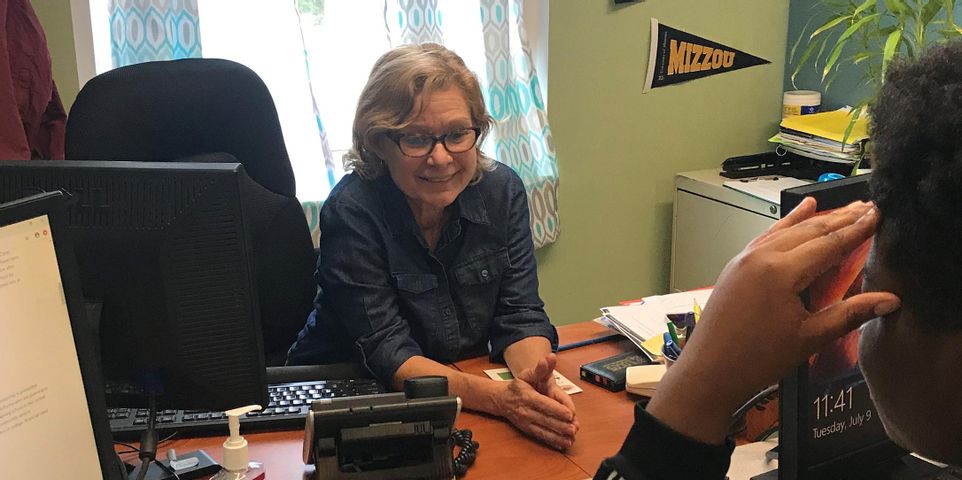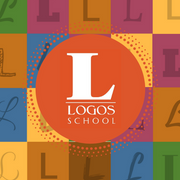
Written by: Kim Jayne
Director of Transition Services, Logos School
Learning how to encourage and support students who lack confidence, suffer from anxiety, or doubt their ability to succeed as they transition to life after high school is crucial and different for every teen.
Students in crisis during the transition period between childhood and adulthood can suffer extreme anxiety, become irritable and irrational, and often engage in distracting behaviors. Dealing with the myriad of possibilities and responsibilities is often overwhelming. At Logos School, we provide individual and group therapy in addition to academic classes to address these issues, increase life skills and build resiliency to ensure a smoother transition and one that is appropriate for each student.
Here are some tips to help students thrive during this transition:
Explore and Experience – Assure teens that many people don’t know exactly what they want to do, career-wise, at their age and that exploring and experiencing a variety of options before graduation will help them make informed choices. Encourage teens to be willing to explore and try new experiences.
Exposing students to post-graduation options lessens anxiety and increases their hope for the future. Visiting a college campus allows students to walk the campus with peers and imagine themselves living in a dorm, attending classes and experiencing college.
If employment is the route a student is planning to take after high school, ensure they explore careers of interest. At Logos School, students participate in activities to assess their interests and skills. They are exposed to people from a variety of career fields and they participate in job shadowing or internship opportunities.
To increase their life skills after graduation, Logos students are encouraged to participate in community service or get a part-time job to provide them with the experience of being reliable, dependable, and following directions. Dual enrollment in college courses allows students to have one foot in the “real world” and one foot in our supportive, therapeutic school.
Career exploration and self-assessments can provide direction for the major and/or school a student should pursue. Additionally, students will need help planning for the ACT and SAT testing, researching colleges or trade schools, and finding scholarships that might benefit them.
Take Baby Steps – To ease some of the anxiety and self-doubt that may occur during this transition, help your student set realistic expectations. Help them begin to manage their time properly by maintaining a calendar with appointments, due dates, and goals. Improve their life skills by increasing their responsibilities at home, especially for their own upkeep. Encourage them to do their own laundry, cook, help with chores or younger siblings, make doctor appointments, and take any medication independently.
If your teen has a limited social life, seek out opportunities or encourage them to develop relationships and engage in recreational activities. There are agencies that can help with that, as well.
Most Logos students participate in a group therapy session called Life After Logos, which teaches life skills including time management, communication in the workplace, and teamwork. They learn about taxes, budgeting money, using credit, leasing an apartment, and buying a car.
Logos staff works with students to apply for jobs, create a resume, practice interviewing and communication skills, learn how to negotiate, and learn about workplace expectations.
Full-time employment, college classes, and/or independent living is exciting, but also challenging. When the excitement wears off, young adults may feel extremely discouraged or defeated when things don’t go according to plan. Ensure they know that these new experiences are different, but not insurmountable.
During our individual and group therapy sessions at Logos, we strive to build resiliency in students, so they can learn to handle disappointments and move forward.
Learn the Art of Decision Making – Making decisions and problem-solving is a vital coping skill. It takes maturity to stop acting impulsively, pause, and determine the best way forward. Help your child define problems, explore options, determine the pros and cons, decide, implement the decision, and review the outcome. The more teens do this, the more innate the process becomes. Eventually, they will apply this process to more challenging decisions.
At this stage of life, students are making decisions about friends, intimate relationships, careers, and college. Although they are moving toward independence, they also need guidance (even if they can’t ask for it). Learning to trust their own decisions is important.
Remind Teens They are Not Alone – Knowing when to ask for help is a sign of strength and a healthy coping strategy. Reaching out to ask for help can be hard, especially in a new environment.
Create a graphic depicting layers of circles with the student in the center. For each of the outer circles, ask the teen to write the names of people they can call if they need help. The first outer circle is those you can call at 2:00 a.m. Further out are people the student can ask for advice, a recommendation, or other forms of help. Explain how they might have a variety of people for different needs.
Individual and group therapy sessions at Logos are intended to assist teens in learning who and how to ask for help and realize there are people who want to assist them and see them succeed. We encourage our students to continue adding positive people to their circles.
During this period parents, too, are learning to adjust their relationship with their teen. Encouraging steps toward independence while being supportive is often a delicate balance.
Let teens know that a new chapter in life, loss of the familiar, and the unknown future is scary for everyone but with planning, courage, support, and key life skills we learn to move forward and grow.
With social media and other communication channels, it may look like peers are confident and adjusting easily after high school. The reality is that nearly everyone will go through the adversities and joys associated with transitioning to employment, independent living and/or post-secondary school. But each student has it in them to rely on the life skills and coping mechanisms they’ve built throughout their K-12 academic experience to become happy, well-adjusted and successful adults.
Logos School is an independent academic and therapeutic school that serves the greater St. Louis region. Our unique program benefits students in grades 6-12 whose intellectual and emotional needs have not been met in a traditional classroom. Through individualized academics, innovative 1:1 counseling and group therapy, as well as parent involvement, we help our students navigate their daily life challenges while preparing them for college or a career and inspiring hope for the future. Contact us at (314) 997-7002 to learn more.
About the Business
Have a question? Ask the experts!
Send your question

